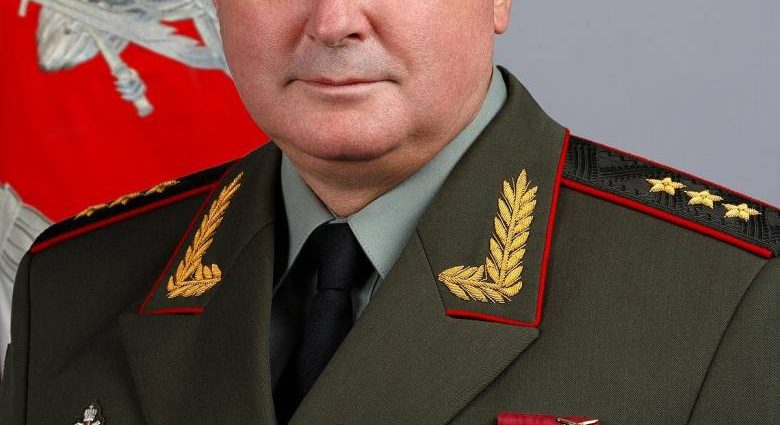
Yevgeny Prigozhin and around 5,000 of his men, now arriving in Belarus, have defied Russian President Putin by refusing to sign any agreement to operate under the Russian defense ministry. That is why the head of Russia’s Defense Committee Andrei Kartapolov said that the Wagner forces will no longer fight in Ukraine. His statement came as Wagner stepped up a recruiting drive inside Russia, apparently without any resistance from the authorities.
Meanwhile, in Belarus, work is moving ahead frantically on the construction of a new base for the Wagner forces. That base is near the town of Osipovichi, some 90 km southeast of the Belarusian capital.
There are a couple of developments. One concerns Sergey Surovikin, aka “General Armageddon” who serves as the deputy to the head of Russia’s armed forces, Valery Gerasimov, and as a special adviser to Prigozhin and the Wagner group. Russian media have reported that he has been detained and is undergoing preliminary investigation regarding his role in the abortive Wagner coup d’état.
The Washington Post, however, quotes Surovikin’s daughter, speaking to a Telegraph channel, as rejecting the claim that he is being detained and describing him as working in his office. (That would not explain what allegedly happened to Surovikin’s deputy; see below.)
At the same time, the Russian government is seeking to replace the Wagner leadership in the Central African Republic. They are Dmitry Syty and Vitaly Perfilev, and the head of the CAR has been informed they will be sacked. There is pushback from CAR saying they are highly valuable and essential to state security, but that may not change anything.
It is also unanswered as to “which” Wagner forces will remain in the Central African Republic. That is to say, will the Wagnerites abroad be required to sign contracts with the Russian army, or will they remain linked to Prigozhin? There are no answers yet on how the Russian government will manage the transition, or whether the deployed forces will obey. If they don’t obey, we have yet another confrontation with Prigozhin that impacts Russia’s foreign policy and security operations outside of Russia.
Wagner gets a big part of its revenue from extreme corruption, starting in Africa where it launders CAR gold and diamonds. Prigozhin also pocketed billions by having favored status as a provisioner of the Russian army on top of skimming from the billions flowing into Wagner from the state treasury to pay his troops and operating costs.
This makes Prigozhin probably the richest oligarch in Russia – at least until now. No one has yet said anything about Prigozhin’s bank accounts or real estate and business operations. Will these be foreclosed by the state?
All this leaves us with two alternative and irreconcilable observations.
The first possible conclusion is that the Kremlin still sees Wagner as very important and useful, so it is allowing Prigozhin and his followers to continue to buck the Russian defense ministry and carry on independently, operating out of Belarus.
The second is, to the contrary, that the Kremlin’s “solution” to live and let live, when it comes to Prigozhin, is a complete failure and Prigozhin and Wagner are reinventing themselves, mostly outside of Russia, continuing their operations in Syria, Libya, Mali, and the Central African Republic.
An airfield in Libya operated by Wagner at al Khadim, was attacked in the last week of June by Turkish Akinci drones. Akinci is a twin-engine drone, the newest in the Bayraktar series.
It may be that the Belarus dictator Aleksander Lukashenko sees the Wagner base as a security force to help him protect his presidency from his regime’s opponents.

It is known that Poland is providing military training for Belarus dissidents, and perhaps Lukashenko does not trust his own army to protect his regime. However, it is risky to put your security in the hands of a fighting force you do not control and one that could turn on you at any time.
Insofar as Putin’s government is concerned, already humiliated by not fighting and destroying the Wagner army, the situation seems far darker. Some of the Russian mil bloggers, who generally supported the army and Putin, are unhappy with how the attempted coup d’état was settled. A few are starting to turn on Putin and decry the failure of the Russian army to take firm action against Wagner. This is the best barometer we currently have about the Russian mood and, perhaps, about support for Putin, which is growing wobbly by the day.
Reportedly there is a purge going on inside Russia to get rid of the Wagner-backers in the army including military intelligence services and inside the government. It is too soon to say either how deep this will go, or whether Putin can risk removing his top military and intelligence leaders, especially with a war raging in Ukraine.
Alexei Venediktov, a Russian journalist and co-owner of Echo of Moscow, reports that the deputy to General Surovikin, Colonel General Andrei Yudin, was dismissed from the ranks of the Russian Armed Forces.
Meanwhile Prigozhin remains defiant and free to operate, but on whose behalf other than himself, is anyone’s guess.
Putin and Lukashenko’s deal with Prigozhin seems to be a total failure.
Stephen Bryen is a senior fellow at the Center for Security Policy and the Yorktown Institute. This article was originally published on his Substack, Weapons and Strategy. Asia Times is republishing it with permission.


